Kushner Co-Ownership Clouds Leasing Of Brooklyn’s Iconic Watchtower Building
For Jared Kushner, last summer was a whirlwind of deal-making. On the campaign trail, in the weeks leading up to the Republican National Convention, the real estate scion was endeavoring to convince his father-in-law, Donald Trump, to install new advisers. At the same time, as CEO of his family’s namesake company, Kushner was helping negotiate one of the largest real estate deals ever completed in Brooklyn, the purchase of a famed commercial property overlooking the East River.
On both fronts, Kushner prevailed. The first week of August, along with two partner firms, he succeeded in acquiring Brooklyn’s Watchtower complex, owned for decades by the Jehovah’s Witnesses, for $340 million. Two weeks later he secured the resignation of Trump campaign chairman Paul Manafort, paving the way for Kushner and his wife, Ivanka Trump, to take on senior White House roles.
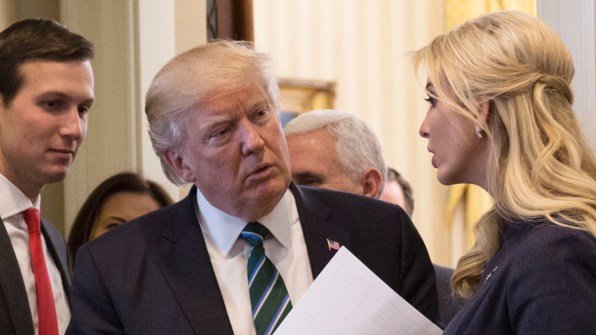
Now, after months of design work, the Watchtower complex has opened for leasing, promoted as a world-class technology hub for a world-class tenant. The project includes 25-30 Columbia Heights, which once served as the Witnesses’ headquarters, and three smaller adjoining buildings, all situated at the edge of Dumbo across from Brooklyn Bridge Park. When complete, the development will contain 635,000 square feet of office space and 35,000 square feet of retail. Kushner, LIVWRK, and CIM Group—the three firms behind the joint venture—have dubbed the project Panorama, for its striking views of the Brooklyn Bridge and the Manhattan skyline beyond.
Kushner stepped down from his role as CEO of Kushner Companies (now simply “Kushner”) in January, prior to Trump’s inauguration, and has agreed to divest himself of some assets. But he remains the beneficiary of more than 200 family-owned properties across the U.S., including 25-30 Columbia Heights. That arrangement puts the property’s prospective tenants in an unusual situation. However indirectly, they will be paying rent to a man with an office in the West Wing. Not only that, but a man who has positioned himself as the behind-the-scenes connection point between business and the administration, responsible for overseeing the president’s innovation office and brazenly at ease orchestrating public-private deals.
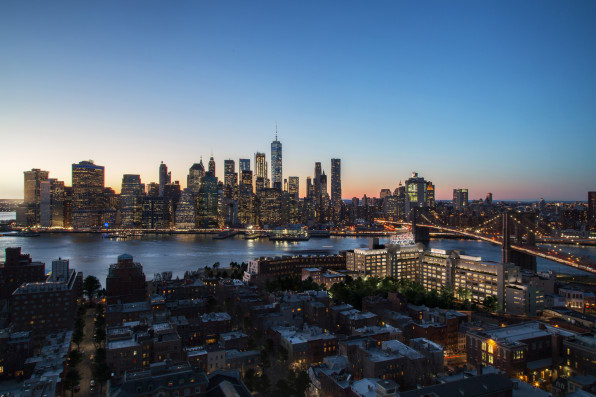
“It creates avenues by which people can influence you or appear to influence you,” Larry Noble, general counsel at the nonpartisan Campaign Legal Center, says of Kushner’s decision to retain many of his investments. “It undermines the credibility of the decision-making, and it undermines the credibility of the government.”
Kushner did not hold back from mixing business and politics while traveling on Trump’s first overseas trip last week, even as reports that he had attempted to establish back-channel communications with Russia began to surface. For example, Stephen Schwarzman, cofounder and CEO of the Blackstone Group—which provided financing for the Columbia Heights acquisition—joined Kushner in Riyadh, while riding high on the news that Saudi Arabia had agreed to invest $20 billion in a Blackstone infrastructure fund. (Schwarzman heads the White House’s business-advisory council.)
“Jared takes the ethics rules very seriously and would never compromise himself or the administration,” a White House spokesperson says. With regard to 25-30 Columbia Heights, “he is fully complying with federal ethics rules and will recuse himself as necessary.”
Kushner has not always operated from behind closed doors. To advertise a prior Brooklyn project, another set of Witnesses properties that Kushner acquired in partnership with LIVWRK and RFR Realty in 2013, the ambitious young developer posed for a New York Times portrait and presented at an industry conference. But this time around, his investment partners are taking the lead. On a tour of the property, it is LIVWRK founder and CEO Asher Abehsera who serves as spokesperson, accompanied by Amanda Carroll, a principal at Gensler and head of the design firm’s technology practice.
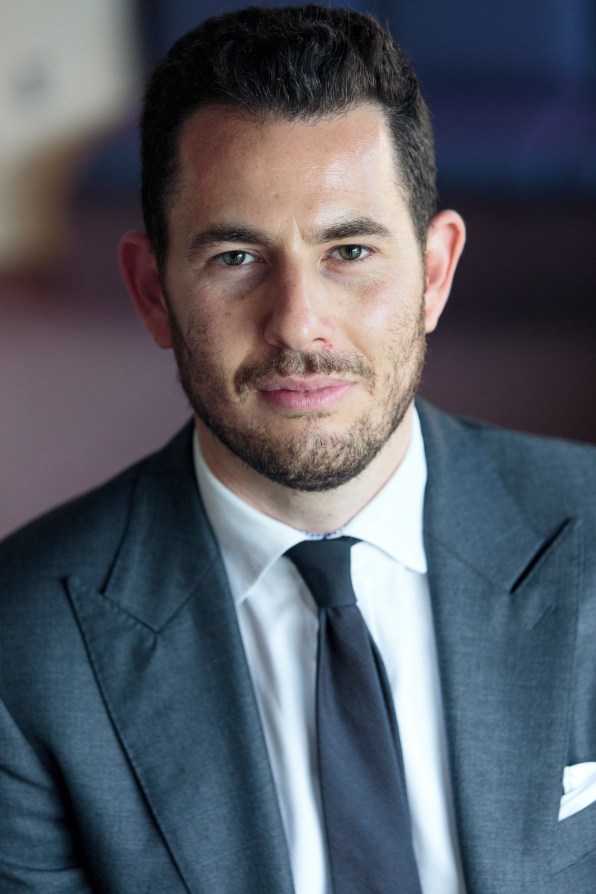
Abehsera describes the relationship between LIVWRK, Kushner’s firm, and CIM as a “very cohesive” partnership (together at Panorama, they are Columbia Heights Associates). “We collaborate and speak every day,” he says, sitting in the soon-to-be-gutted lobby of 25 Columbia Heights. Spring sun warms the faded carpet underfoot.
Abehsera envisions leasing Panorama’s office space to a single major tenant—a “global economy” company on par with the likes of GE or IBM. Gensler, hired to lead the design work, has outlined scenarios for a finance, media, or technology company looking to house roughly 5,000 employees, at capacity.
“The renaissance of residential development in Brooklyn has been very robust and added thousands of units to the market,” Abehsera says. “Where are all these people going to work? People want to walk local, eat local, work out local, and work local.” He adds: “We see Brooklyn as really underserved.”
That is beginning to change, thanks in part to Abehsera’s efforts. The Dumbo Heights properties he developed alongside Kushner contain 1.2 million square feet of space, now occupied by tenants including Etsy and WeWork (the gut renovation cost over $100 million). Dumbo in particular has become a major hub of commercial real estate activity, but other Brooklyn neighborhoods have won converts as well: Last year Brooklyn Brewery leased 75,000 square feet in the Navy Yard, Amazon leased 54,000 square feet in Sunset Park, and Tesla leased 40,000 square feet in Red Hook. All told nearly 10 million square feet of renovated or converted office space is now in the works across the borough, increasing Brooklyn’s office inventory by 25%.
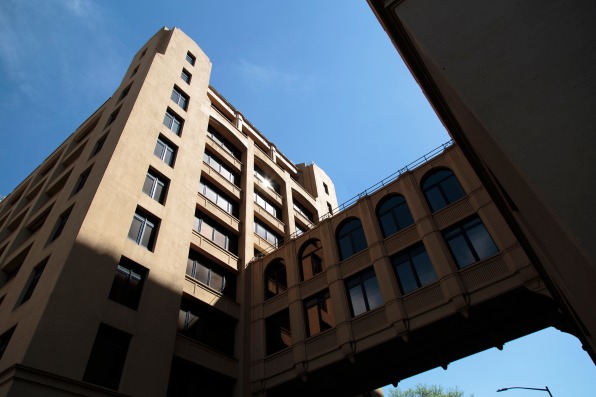
Education company 2U signed in February to lease 79,500 square feet at 55 Prospect St., part of the Dumbo Heights complex. After working for years out of a relatively isolated office in Chelsea Piers, 2U chief technology officer James Kenigsberg says his team is looking forward to forging connections with peer companies nearby by hosting meetups and other events. “There’s a much more close-knit community of technologists and creative people,” he says, versus Manhattan.
Kushner’s ownership was not a concern for 2U. “I care about people when I make my hiring decisions, not when I think about landlords of large real estate properties,” Kenigsberg says. Moreover, 2U is hardly alone: “A lot of great companies are next door to us, renting from the same folks.”
To date, only one company has abandoned plans to occupy Kushner-owned space due to concerns about potential conflicts or public perception: the Guardian, which extricated itself from a deal with the Dumbo Heights WeWork after a “groundswell” of staff outcry in March.
“The basic feeling in the room was that the Guardian should not be in any form be associated with paying money to Kushner,” says a newsroom source.
Abehsera dismisses the case as an isolated example. “Maybe optically the Guardian was looking for some press,” he says. As for whether other companies think twice about doing business with a Kushner joint venture: “That’s not a concern, it never has been a concern.”
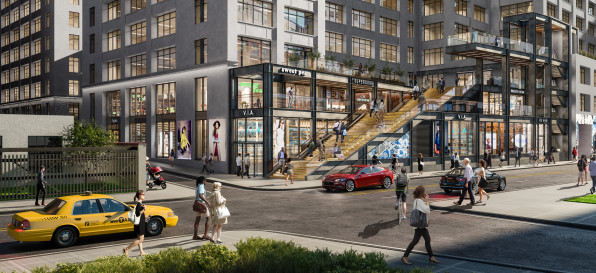
Instead, he is focused on selling the virtues of 25-30 Columbia Heights. Today, where loading docks face Furman Street, Abehsera imagines a broad staircase leading visitors up to restaurants, boutiques, and fitness studios, all opposite the waterfront. “When you’re sitting on this deck—that’s when you’re going to do your little selfies and get the views,” he says, pointing to a Gensler-drafted rendering. In the image the building’s tan exterior has been painted a cool blue-gray, the color inspired by the ships that once trafficked nearby.
Inside, the warren-like property is rife with oddities. There is a doorway styled to look like a Biblical-era arch and a basketball court eye-level with the Brooklyn-Queens Expressway. On the top floor of 30 Columbia Heights, a cave-like space that could double as a rave venue once served as home base for the Witnesses’ broadcast operations. Many of the higher floors boast terraces, with 20 in all.
Abehsera highlights the terraces and double-height top floors as signature features for a tenant interested in hosting events. There are also multiple entrances and a private elevator, easing access for non-employee guests and VIPs.
In the months to come the Panorama partners plan to tear down the majority of the interior walls, shave the columns, strip the floors and ceilings to their base, and reglaze the windows. One floor plate, airy and bright, offers a preview of this transformation; demolition of the rest of the property is now underway.

After zigzagging our way up and through the property’s many elevators and carpeted corridors, we arrive at a westward-facing penthouse terrace, floating above the East River and Hudson beyond. Across the harbor, the Statue of Liberty winks silver-green in the bright sunshine.
By now, Abehsera has fully warmed to his pitch: “If you’re in Manhattan you’re just another tenant, you might get lost in the shuffle. If you’re trying to change the game and create something really inspiring, this is where you come to plant your flag,” he says.
He has little patience for questions about Kushner. “It’s financed, hammers are going to start swinging, and we’re going to re-create this corner of the neighborhood.”
And if a prospective tenant benefits from government contracts, or is in the process of lobbying for regulatory changes? “That’s not something we’ve thought through and considered. There is no plan,” he says, dismissing the possibility. “Is this really relevant?”
Through a spokesperson, Kushner (the company) declined to comment on whether it has implemented protocols to guard against conflicts of interest.
Yet ethical controversy continues to encircle the firm and the family running it. Earlier this month at ballrooms in Beijing and Shanghai, Jared Kushner’s sister, Nicole Meyer, courted Chinese investors with the means to afford the controversial U.S. visa program known as EB-5, which offers foreign millionaires a pathway to citizenship in return for a $500,000 check. Meyer, who had traveled to China to pitch Kushner’s EB-5-eligible $150 million housing development in Jersey City, N.J., highlighted her brother’s close ties to President Trump and said that the project “means a lot to me and my entire family,” according to the New York Times. (25-30 Columbia Heights has not received EB-5 funding.)
The Kushner family entanglements echo those of Trump himself, who has been criticized for using the presidency to promote Mar-a-Lago, his Florida club, and the Trump International Hotel in Washington, D.C., among other holdings.
As for 25-30 Columbia Heights, New York real estate analysts raise more practical concerns about the viability of landing a major commercial tenant. “You just don’t have the same transit connections there,” says Jim Costello, a senior vice president at Real Capital Analytics, a firm that tracks real estate transaction data and investment trends. The A/C and 2/3 subway lines stop nearby, as well as the F, but the location poses a challenge for anyone arriving via Metro North railroad or NJ Transit. If “creative class” Brooklyn is the neighborhood’s primary draw: “There are creative parts of Manhattan, too.”
Costello is more bullish on downtown Brooklyn, due to the neighborhood’s proximity to the Atlantic Terminal, which includes many more subway lines and the Long Island Railroad (LIRR). But there is no green space in downtown Brooklyn, no waterfront vista, and little in the way of artisanal charm. Panorama’s Dumbo location offers all three—at a price.
The 742,000-square-foot development is a major bet on Brooklyn as commercial hub. But will a marquee tenant be eager to sign on?
For Jared Kushner, last summer was a whirlwind of deal-making. On the campaign trail, in the weeks leading up to the Republican National Convention, the real estate scion was endeavoring to convince his father-in-law, Donald Trump, to install new advisers. At the same time, as CEO of his family’s namesake company, Kushner was helping negotiate one of the largest real estate deals ever completed in Brooklyn, the purchase of a famed commercial property overlooking the East River.
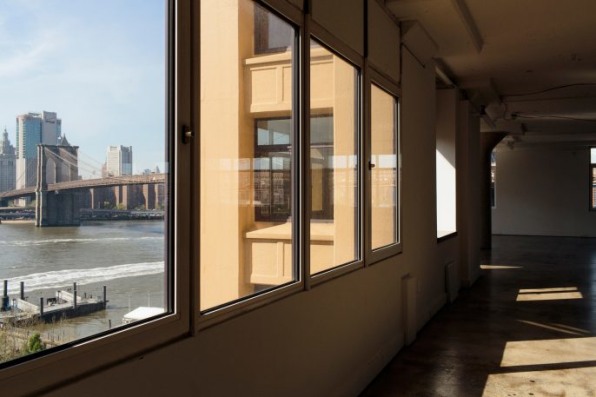
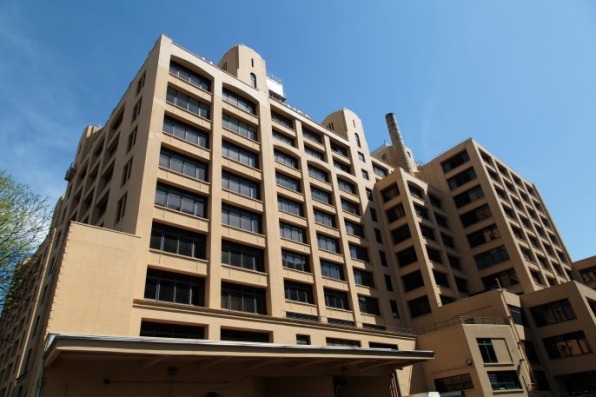
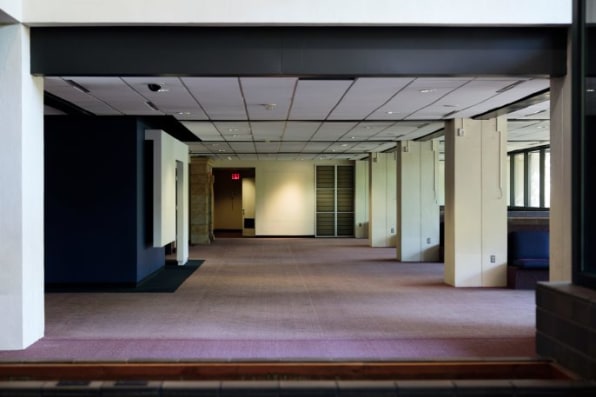
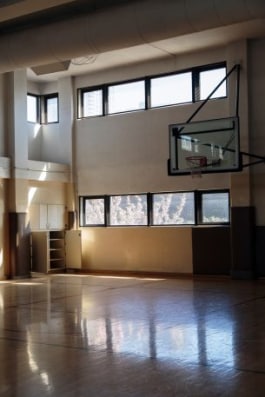
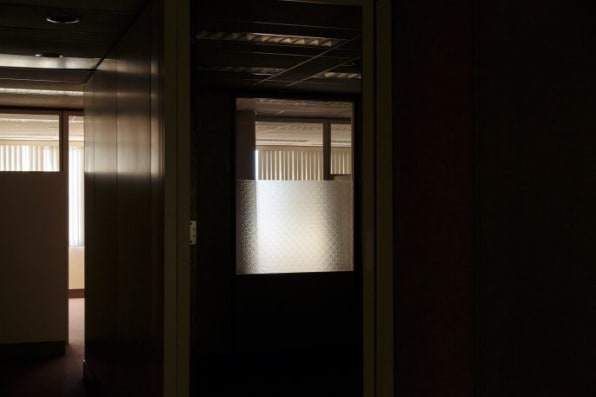

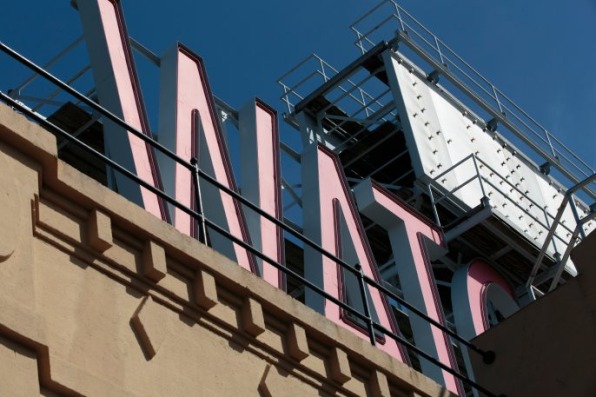

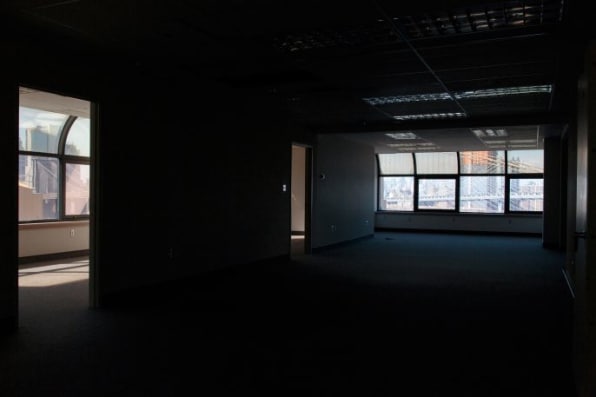
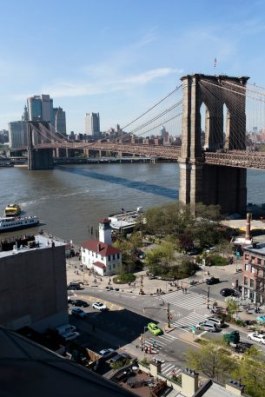
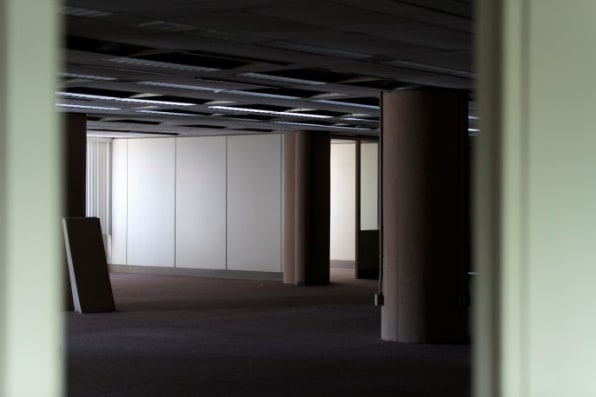
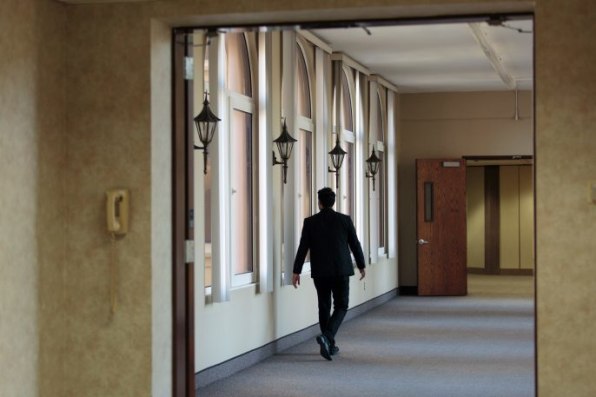
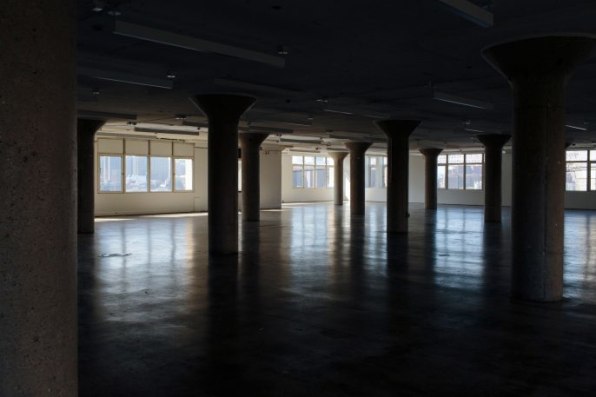
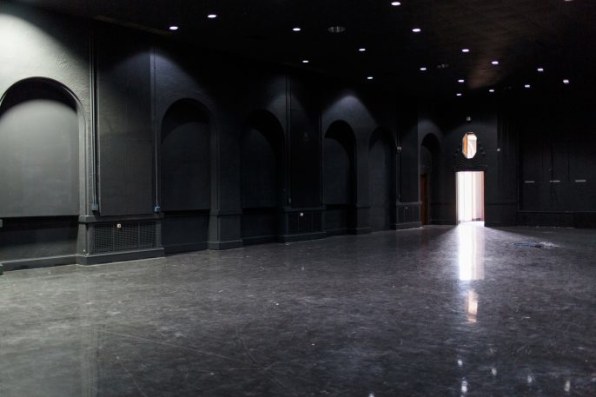
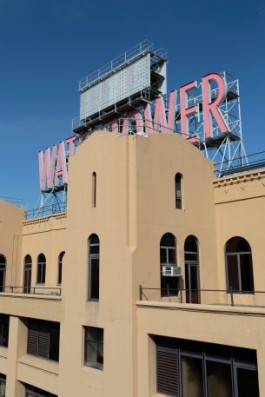

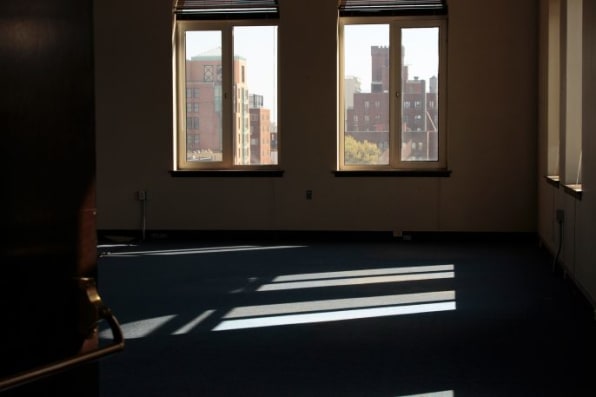
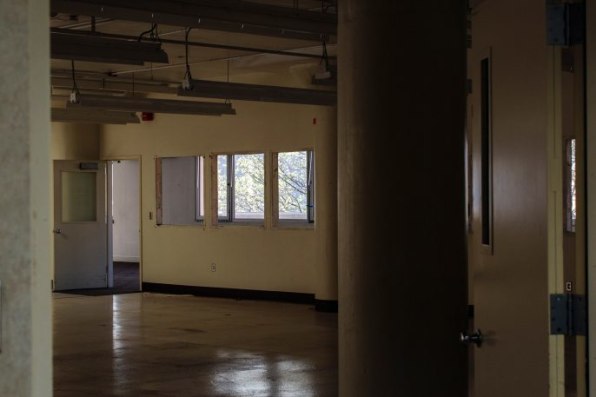
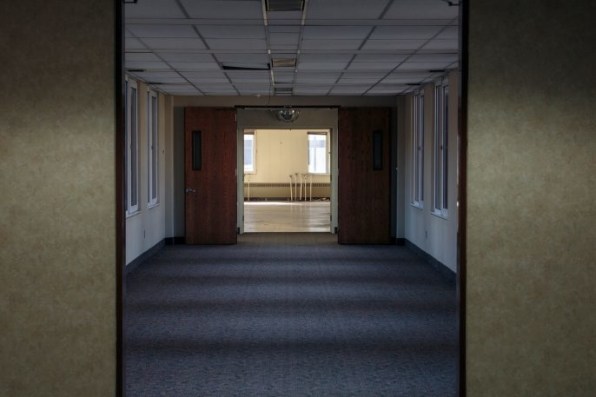
Fast Company , Read Full Story
(112)









